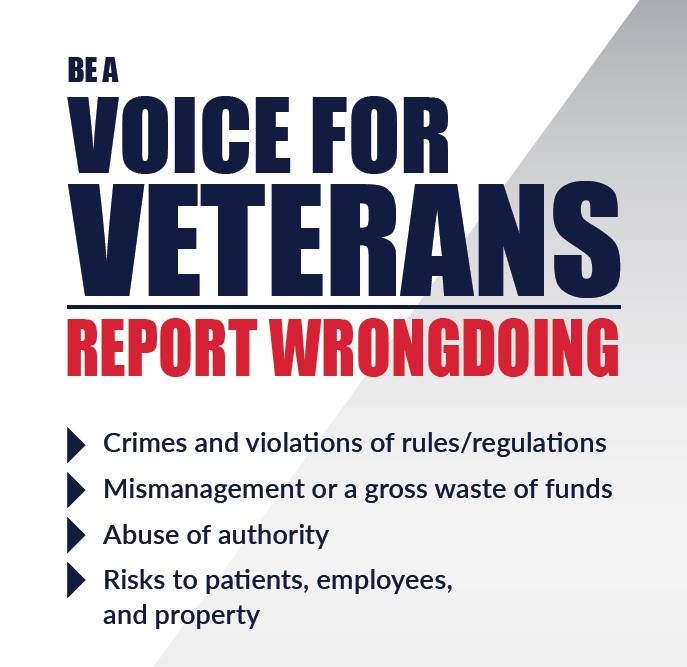- Home
- Psychologist & Psychiatrist C&P Examiners
- Disability Exams Research
- Recommended Reading
Recommended Reading List
Psychologist & Psychiatrist C&P Examiners
Updated 23 July 2020.
This is a recommended reading list for psychologist and psychiatrist C&P examiners - those who conduct VA claim exams with United States military veterans for posttraumatic stress disorder (PTSD) and other mental disorders.
Click here to download the Recommend Reading List (PDF file) - updated 23 July 2020.
If you are a psychologist, psychiatrist, or other mental health clinician who conducts C&P exams for VA or an MDE company; or if you provide professional, VA-accredited services to veterans (service officer, claims agent, or attorney), you might wish to join the Psych C&P Exam email discussion list ("comp and pen listserv").
This recommended reading list for C&P psychologist and psychiatrist examiners was originally compiled by several Compensation and Pension (C&P) psychologists and psychiatrists from around the country in 2014, and has been periodically updated since then by Mark D Worthen PsyD.
This list is not a Department of Veterans Affairs (VA) document.
If you find any errors, including broken links, please let Mark know.
Also, if you think an article, book, or other resource should be added to this list, please contact Mark.
PTSDexams.net is an educational site with no advertising and no affiliate links. Dr. Worthen conducts Independent Psychological Exams (IPE) with veterans, but that information is on his professional practice website.
Table Contents
- Their First Quarrel - illustration by Charles D. Gibson (1914)
How to Find Journal Articles & Books
Most Important articles, books, websites, etc.
- Books through a keyhole - photograph by WeLoveSmick (2007)
Important articles, books, websites, etc.
- Book of Romance ~ illustration by breath-art (2008)
Recommended articles, books, websites, etc.
Their First Quarrel
How to Find Journal Articles & Books
(i) If you are a VA employee, contact your local librarian and/or consult the VHA National Desktop Library. VA librarians are immensely helpful and you can find about 80% of journals directly and the rest through interlibrary loan.
(ii) For recent journal articles, request a copy from the corresponding author. (Unfortunately, APA [APA PsycNet] does not identify the corresponding author.)
(iii) Search for the title of the article on Google Scholar – look to the right side of the search results page for links to PDF copies of the article.
Also click on "All n versions", where n is a numeral indicating the number of versions of the article available online. You can often find PDF (or HTML) versions of an article in this manner.
(iv) If a citation has a PMC citation, e.g., "PMC2867495", that means a full-text (PubReader, ePub, PDF) version of the article is available on PubMed Central. [PubMed Central® is a free full-text archive of biomedical and life sciences journal literature at the U.S. National Institutes of Health's National Library of Medicine (NIH/NLM).]
(v) See John Mark Ockerbloom, "Why pay for what’s free? Finding open access and public domain articles," Everybody's Libraries (23 Oct 2018), https://perma.cc/K4PP-UE6F
(vi) Consult UnPaywall.org for journal articles available without a subscription. Install the UnPaywall extension for Chrome or Firefox to immediately identify articles with a free version (often a preprint or author’s copy).
Psychologist and Psychiatrist C&P Examiners Recommended Reading List
Updated 23 July 2020
Most Important Articles
for Psychologist and Psychiatrist C&P Examiners
Anfang, Stuart A., Liza H. Gold, and Donald J. Meyer. "AAPL Practice Resource for the Forensic Evaluation of Psychiatric Disability." Supplement, Journal of the American Academy of Psychiatry and the Law 46, no. 1 (2018): S1–S47.
American Bar Association/American Psychological Association (2008). Assessment of older adults with diminished capacity: A handbook for psychologists. Washington, D.C.: Authors.
American Psychological Association (2013). Specialty guidelines for forensic psychology. American Psychologist, 68(1), 7–19.
Auer, Marjorie, Troy Baxley, Joseph Enderle, Caroll McBrine, and Lewis R. Coulson, C&P Service Clinician's Guide, version 3.0, ed. Lewis R. Coulson (Washington, D.C.: Dep't Veterans Aff., Veterans Health Admin., March 2002), 5–15, 181–217, 259. [A nice clean PDF version of the Clinician's Guide is available free to PTSDexams.net VIP Members.]
Bornstein, R. F. (2016). Evidence-based psychological assessment. Journal of Personality Assessment 99(4), 435-445.
Bush, S. S., Heilbronner, R. L., & Ruff, R. M. (2014). Psychological assessment of symptom and performance validity, response bias, and malingering: Official position of the Association for Scientific Advancement in Psychological Injury and Law. Psychological Injury and Law, 7(3), 197–205.
Caron, J. E. (2017). "The veteran’s disability examination: considerations for neuropsychologists." In S.S. Bush, G. Demakis, & M. Rohling (Eds.) APA Handbook of forensic neuropsychology. Washington, DC: American Psychological Association.
Caron, J. E., & Floyd, M. R. (2018). "Compensation and pension examinations with older veterans." In S.S. Bush & A.L. Heck (Eds.) Forensic geropsychology: practice essentials. Washington, DC: American Psychological Association.
Coyle, S., Ishizawar, A., & Seesel, H. (2012). The medical examiner as factfinder: the effect of the lay evidence doctrine on VA's duty to assist in securing medical nexus opinions. Veterans Law Review, 4, 131–161.
Francway v. Wilkie, 940 F.3d 1304 (Fed. Cir. 2019) (en banc). [See also Key Points for Psych C&P Examiners.]
Garbelman, J. L. (2017). Conducting veteran dependency and indemnity compensation exams: Establishing a nexus between mental health and death. Psychological Injury and Law, 10(2), 161-176. doi:10.1007/s12207-017-9284-8
Garbelman, J. (2017). The insanity exemption to other than honorable discharge for the purpose of claiming benefits: the role of the mental health examiner. Psychological Injury and Law, 10(2), 177-190. doi:10.1007/s12207-017-9285-7
Greenberg, Stuart A. and Daniel W. Shuman. "Irreconcilable Conflict Between Therapeutic and Forensic Roles." Professional Psychology: Research and Practice 28, no. 1 (1997): 50–57.
Hall, R. C. W. & Hall, R. C. W. (2012). Compensation neurosis: A too quickly forgotten concept? Journal of the American Academy of Psychiatry and the Law, 40(3), 390-398.
Marx, B. P., Bovin, M. J., Szafranski, D. D., Engel-Rebitzer, E., Gallagher, M. W., Holowka, D. W., … Keane, T. M. (2016). Validity of posttraumatic stress disorder service connection status in Veterans Affairs electronic records of Iraq and Afghanistan veterans. Journal of Clinical Psychiatry, 77(4), 517–522. https://doi.org/10.4088/JCP.14m09666 (in the public domain for U.S. residents)
Moering, R. G. (2011). Military service records: Searching for the truth. Psychological Injury and Law, 4(3-4), 217-234.
Orme, D. R. (2012). Diagnosing PTSD: Lessons from neuropsychology. Military Psychology, 24, 397-413.
Philipps, Dave (writer) and Mary F. Calvert (photographer), "Six Men Tell Their Stories of Sexual Assault in the Military", New York Times (10 September 2019).
Ray, C. L. (2017). Practical use of MMPI-2-RF validity indicators in VA compensation and pension examinations. Psychological Injury and Law, 10(3), 223-233.
Ridgway, J. D. (2012). Mind reading and the art of drafting medical opinions in veterans benefits claims. Psychological Injury and Law, 5(1), 72-87.
Russo, A. C. (2013). Ethical, legal and risk management considerations in the neuropsychological assessment of veterans. Psychological Injury and Law, 6(1), 21–30.
Russo, A. C. (2014). Assessing veteran symptom validity. Psychological Injury and Law, 7(2), 178-190.
Speroff, T., et al. (2012). Impact of evidence-based standardized assessment on the disability clinical interview for diagnosis of service-connected PTSD: A cluster-randomized trial. Journal of Traumatic Stress, 25(6), 607-615.
Strasburger, Larry H., Thomas G. Gutheil, and Archie Brodsky. "On Wearing Two Hats: Role Conflict in Serving as Both Psychotherapist and Expert Witness." American Journal of Psychiatry 154, no. 4 (1997): 448–456.
Veterans Benefits for PTSD in the United States - an extensively peer-reviewed Wikipedia good article.
Wolf, Erika J., Stephanie Ellickson-Larew, Rachel E. Guetta, Shaline Escarfulleri, Karen Ryabchenko, and Mark W. Miller. "Psychometric Performance of the Miller Forensic Assessment of Symptoms Test (M-FAST) in Veteran PTSD Assessment." Psychological Injury and Law, epub ahead of print (15 April 2020). doi:10.1007/s12207-020-09373-y
Worthen, M. D. & Moering, R. G. (2011). A practical guide to conducting VA compensation and pension exams for PTSD and other mental disorders. Psychological Injury and Law, 4(3-4), 187-216. doi:10.1007/s12207-011-9115-2
Worthen, Mark D., "Psych Exams Are Unfair to Veterans" (Wʜɪᴛᴇ Pᴀᴘᴇʀ), Social Science Research Network, (25 Jan 2018, rev. 15 Jun 2018), doi:10.2139/ssrn.3102447
Young, G. (2015). Malingering in forensic
disability-related assessments: Prevalence 15±15%. Psychological injury and law, 8(3), 188-199.
keyhole
Important Articles
for Psychologist and Psychiatrist VA Examiners
Allen v. Principi, 237 F.3d 1368 (Fed. Cir. 2001).
Arbisi, P. A., Murdoch, M., Fortier, L., & McNulty, J. (2004). MMPI-2 validity and award of service connection for PTSD during the VA Compensation and Pension evaluation. Psychological Services, 1(1), 56. https://doi.org/10.1037/1541-1559.1.1.56
Bonanno, G. A. & Mancini, A. D. (2012). Beyond resilience and PTSD: Mapping the heterogeneity of responses to potential trauma. Psychological Trauma: Theory, Research, Practice, and Policy, 4(1), 74-83.
Denning, J. H., & Shura, R. D. (2017). Cost of malingering mild traumatic brain injury-related cognitive deficits during compensation and pension evaluations in the veterans benefits administration. Applied Neuropsychology: Adult. Advance online publication. 1–16. doi:10.1080/23279095.2017.1350684
Devine, P. G., Forscher, P. S., Austin, A. J., & Cox, W. T. L. (2012). Long-term reduction in implicit race bias: A prejudice habit-breaking intervention. Journal of Experimental Social Psychology, 48(6), 1267-1278. doi:10.1016/j.jesp.2012.06.003 PMC3603687
Franklin, C., Repasky, S., Thompson, K., Shelton, S., & Uddo, M. (2002). Differentiating overreporting and extreme distress: MMPI-2 use with compensation-seeking veterans with PTSD. Journal of Personality Assessment, 79(2), 274-285.
Frueh, B.C., Hamner, M.B., Cahill, S.P., Gold, P.B., Hamlin, K.L. (2000). Apparent symptom overreporting in combat veterans evaluated for PTSD. Clinical Psychology Review, 20 (7), 853-885.
Hernandez, C. (2016, February 21). Thieves and liars: PTSD fakers and the VA. Breach. Bang. Clear.
Holowka, D. W., Marx, B. P., Gates, M. A., Litman, H. J., Ranganathan, G., Rosen, R. C., & Keane, T. M. (2014). PTSD diagnostic validity in Veterans Affairs electronic records of Iraq and Afghanistan veterans. Journal of Consulting and Clinical Psychology, 82(4), 569–579. https://doi.org/10.1037/a0036347 (paywall) https://perma.cc/U3VA-N4B9 (PDF)
Jackson, J. C., et al. (2011). Variation in practices and attitudes of clinicians assessing PTSD-related disability among Veterans. Journal of Traumatic Stress, 24(5), 609–613. | https://doi.org/10.1002/jts.20688
Jankowski RL, Black AC, Lazar CM, Brummett BR, Rosen MI (2019). Consideration of substance use in compensation and pension examinations of veterans filing PTSD claims. PLOS ONE 14(2): e0210938. https://doi.org/10.1371/journal.pone.0210938 (open source)
Johansen, T. (2017). Core competencies in VA compensation and pension exams for PTSD and other mental disorders. Psychological Injury & Law, 10(3), 234-243. https://doi.org/10.1007/s12207-017-9298-2
Jones v. Shinseki, 23 Vet. App. 382 (2010).
Mathis v. McDonald, 834 F. 3d 1347, 1356 (Fed. Cir. 2016) (Reyna, J., dissenting from denial of rehearing en banc)
Mathis v. McDonald, 834 F. 3d 1347 (Fed. Cir. 2016) (denial of hearing en banc), cert. denied, Mathis v. Shulkin, U.S. No. 16-677, slip op. (Sotomayor, J., statement) (June 26, 2017)
Mathis v. McDonald, 834 F. 3d 1347 (Fed. Cir. 2016) (denial of hearing en banc), cert. denied, Mathis v. Shulkin, U.S. No. 16-677, slip op. (Gorsuch, J., dissenting) (June 26, 2017).
McBain, Sacha A., Jade Garneau-Fournier, and Jessica A. Turchik. “The Relationship Between Provider Gender Preferences and Perceptions of Providers Among Veterans Who Experienced Military Sexual Trauma.” Journal of Interpersonal Violence, epub ahead of print (1 Aug 2020). https://doi.org/10.1177/0886260520944536
McMath, William. (2015). My education at the VA: C&P exams and PTSD. (Fifty well-written, illuminating blog posts written by a former C&P psychologist.)
Morel, K. R. (2013). Cutoff scores for the Morel Emotional Numbing Test for PTSD: Considerations for use in VA mental health examinations. Psychological Injury and Law, 6(2), 138-143. https://doi.org/10.1007/s12207-013-9151-1
Murdoch, M., Sayer, N. A., Spoont, M. R., Rosenheck, R. A., Noorbaloochi, S., Griffin, J. M., Arbisi, P. A., & Hagel, E. M. (2011). Long-term outcomes of disability benefits in US veterans with posttraumatic stress disorder. Archives of General Psychiatry, 68(10), 1072-1080. doi:10.1001/archgenpsychiatry.2011.105
Nieves-Rodriguez v. Peake, 22 Vet. App. 295 (2008).
Nohr v. McDonald, 27 Vet. App. 124 (2015).
Poyner, G. (2010). Psychological evaluations of veterans claiming PTSD disability with the Department of Veterans Affairs: A clinician’s viewpoint. Psychological Injury and Law, 3, 130– 132. doi:10.1007/s12207-010-9076-x
Vazquez-Claudio v. Shinseki, 713 F.3d 112, 117 (2013).
Varela, J. G., & Conroy, M. A. (2012). Professional competencies in forensic psychology. Professional Psychology: Research and Practice, 43(5), 410-421.
Veterans Benefits for PTSD in the United States - an extensively peer-reviewed Wikipedia good article.
Veterans Law Library – best source of veterans law updates.
Vietnam-era MOS codes
- It’s often hard to find Military Occupational Specialty (MOS) codes from past decades. These three websites have them for the 1960s to early 1970s:
- Vietnam-era MOS codes - (all branches)
- Vietnam-era MOS - (Marine Corps only)
- MOS Codes in the Vietnam era - (all branches)
Young, G. (2015). Towards balanced VA and SSA policies in psychological injury disability assessment. Psychological Injury and Law, 8(3), 200-218. https://doi.org/10.1007/s12207-015-9230-6
Zarembo, A. (2014, August 3). As disability awards grow, so do concerns with veracity of PTSD claims. Los Angeles Times.
romance
Recommended Articles
for Psychologist and Psychiatrist C&P Examiners
Adler, A. B. & Castro, C. A. (2013). An occupational mental health model for the military. Military Behavioral Health, 1(1), 41-45. https://doi.org/10.1080/21635781.2012.721063
Arbisi, P. A., Ben-Porath, Y. S., & McNulty, J. (2006). The ability of the MMPI-2 to detect feigned PTSD within the context of compensation seeking. Psychological Services, 3(4), 249-261. doi:10.1037/1541-1559.3.4.249
Bass, C., & Halligan, P. (2014). Factitious disorders and malingering: challenges for clinical assessment and management. The Lancet, 383(9926), 1422–1432. doi:10.1016/S0140-6736(13)62186-8
Bovin, M. J., Marx, B. P., & Schnurr, P. P. (2015). Evolving DSM diagnostic criteria for PTSD: Relevance for assessment and treatment. Current Treatment Options in Psychiatry, 2(1), 86-98. https://doi.org/10.1007/s40501-015-0032-y
Chefetz, M. (2011). The psychological consultative examination for social security disability. Psychological Injury and Law, 4(3-4), 235-244. https://doi.org/10.1007/s12207-011-9112-5
Cocchiarella, L. & Gunnar, B. J. A. (2001). Mental and behavioral disorders. In Guides to the Evaluation of Permanent Impairment, 5th ed. Chicago: American Medical Association Press. See also Rondinelli, Robert D. (medical editor). Guides to the Evaluation of Permanent Impairment, 6th ed.
Department of Veterans Affairs (2004). C&P clinicians’ guide. Washington, D.C.: Author.
Editorial (2014, November 18). Revamp VA disability benefits. Los Angeles Times.
Elliott, Jonathan E., Ryan A. Opel, Dennis Pleshakov, Tara Rachakonda, Alexander Q. Chau, Kristianna B. Weymann, and Miranda M. Lim. "Posttraumatic Stress Disorder Increases the Odds of REM Sleep Behavior Disorder and Other Parasomnias in Veterans with and without Comorbid Traumatic Brain Injury." Sleep 43, no. 3 (Mar 2020): zsz237. doi:10.1093/sleep/zsz237
Evans, F. B. (2011). Introduction to practice matters special section on VA compensation and pension exams for PTSD and other mental disorders. Psychological Injury and Law, 4(3-4), 169-170.
Faust, D. (2011). Coping with psychiatric and psychological testimony: based on the original work by Jay Ziskin (6th ed.). New York, NY: Oxford University Press.
FitzGerald, C., & Hurst, S. (2017). Implicit bias in healthcare professionals: a systematic review. BMC Medical Ethics, 18(1). doi:10.1186/s12910-017-0179-8 | PMC5333436
Foote, W. E. (2008). Evaluations of individuals for disability in insurance and Social Security contexts. In R. Jackson (Ed.), Learning forensic assessment (International Perspectives on Forensic Mental Health) (pp. 449–479). New York, NY: Taylor & Francis Group.
Frueh, B. C., et al. (2005). Documented combat exposure of US veterans seeking treatment for combat-related post-traumatic stress disorder. British Journal of Psychiatry, 186, 467-472. [PDF]
Gade, D. M. (2013). Avoiding perverse incentives in the wounded veteran’s recovery process. In T. Meyer (Ed.), Serving those who served: A wise giver’s guide to assisting veterans and military families (pp. 14-31). Washington, D.C.: The Philanthropy Roundtable. | PDF
Hall, W. J., et al., (2015). Implicit racial/ethnic bias among health care professionals and its influence on health care outcomes: a systematic review. American Journal of Public Health, 105(12), e60–e76. doi:10.2105/AJPH.2015.302903 | PMC4638275
Harbaugh, K. (2015, June 1). The risk of over-thanking our veterans. New York Times.
Hernandez, C. (2014, February 10). PTSD: Fakers and frauds and WTAF? Breach. Bang. Clear.
Hernandez, C. (2014, February 26). PTSD, reading comprehension and the great American love of victimhood. Breach. Bang. Clear.
Huang, D. (2014, October 27). VA disability claims soar: Some see higher fraud risk as more vets seek compensation, overloading doctors. Wall Street Journal. [paywall]
Huang, D. (2015, May 11). Automated system often unjustly boosts veterans’ disability benefits. Wall Street Journal. [paywall]
Huang, D. (2016, July 15). Trying to serve more veterans faster, VA opens door to disability fraud. Wall Street Journal. [paywall]
Institute of Medicine (2007). A 21st century system for evaluating veterans for disability benefits. Washington, DC: The National Academies Press. | HTML | PDF (requires free registration)
Institute of Medicine and National Research Council (2007). PTSD compensation and military service. Washington, DC: National Academies Press.
Institute of Medicine, Committee on Psychological Testing (2015). Psychological testing in the service of disability determination. Washington, D.C.: National Academies Press.
Kennedy, C. H. & Zillmer, E. A. (Eds.) (2012). Military psychology: Clinical and operational applications, 2nd Edition. New York: Guilford.
Maguen, S. & Litz, B. (2012). Moral injury in veterans of war. PTSD Research Quarterly, 23(1), 1-6.
Marmar, C. R., Schlenger, W., Henn-Haase, C., Qian, M., Purchia, E., Li, M., . . . Kulka, R. A. (2015). Course of posttraumatic stress disorder 40 Years after the Vietnam War: Findings from the National Vietnam Veterans Longitudinal Study. JAMA Psychiatry, 72(9), 875-881. https://doi.org/10.1001/jamapsychiatry.2015.0803
Meyer, G. J., et al. (2001). Psychological testing and psychological assessment: A review of evidence and issues. American Psychologist, 56(2), 128-165. https://doi.org/10.1037/0003-066X.56.2.128
Melton, G. B., Petrila, J., Poythress, N. G., Slobogin, C., Otto, R. K., Mossman, D., & Condie, L. O. (Eds.) (2017). Psychological evaluations for the courts (4th ed.). New York, NY: Guilford.
Milchman, M. S. (2011). The roles of scientific and clinical epistemologies in forensic mental health assessments. Psychological Injury and Law, 4(2), 127-139. doi:10.1007/s12207-011-9104-5
Ridgway, J. (2015). Veterans law: Cases and theory. Saint Paul, MN: West Academic.
Rodriguez, P., Holowka, D. W., & Marx, B. P. (2012). Assessment of posttraumatic stress disorder-related functional impairment: A review. Journal of Rehabilitation Research & Development, 49(5), 649-666.
Rosen, M. I. (2010). Compensation examinations for PTSD—an opportunity for treatment? Journal of Rehabilitation Research and Development, 47, xv–xxii.
Rosen, M. I., et al. (2013). Racial differences in veterans' satisfaction with examination of disability from posttraumatic stress disorder. Psychiatric Services, 64(4), 354-359.
Rogers, R. (Ed.). (2018). Clinical assessment of malingering and deception (4th ed.). New York, NY: Guilford.
Rubenzer, S. (2009). Posttraumatic stress disorder: Assessing response style and malingering. Psychological Injury and Law, 2(2), 114–142.
Salgado, C. A. & Dike, C. C. (2015). Veterans Affairs' problematic evaluation of a veteran's claim for service-connected psychiatric disability. Journal of the American Academy of Psychiatry and the Law, 43(1), 119-121.
Steenkamp, M. M., & Litz, B. T. (2013). Psychotherapy for military-related posttraumatic stress disorder: Review of the evidence. Clinical Psychology Review, 33(1), 45–53.
Stewart, R. W., Tuerk, P. W., Metzger, I. W., Davidson, T. M., & Young, J. (2016). A decision-tree approach to the assessment of posttraumatic stress disorder: Engineering empirically rigorous and ecologically valid assessment measures. Psychological Services, 13(1), 1–9. doi:10.1037/ser0000069
Watson, P., McFall, M., McBrine, C., Schnurr, P. P., Friedman, M. J., Keane, T., & Hamblen, J. L. (2002). Best practice manual for posttraumatic stress disorder (PTSD) compensation and pension examinations. Washington, D.C.: Department of Veterans Affairs. [Note: VA no longer considers the Best Practice Manual to be authoritative,1 although their explanation does not make sense. Plus, VA has had 18 years to revise or rewrite the Manual, but they have chosen to neglect this important guide.]
Weathers, F. W., Keane, T. M., & Foa, E. B. (2009). Assessment and diagnosis of adults. In E. B. Foa, T. M. Keane, M. J. Friedman & J. A. Cohen (Eds.), Effective treatments for PTSD: Practice guidelines from the International Society for Traumatic Stress Studies (2nd Ed.) (pp. 23-61). New York, NY: Guilford Press.
Weathers, F. W., Marx, B. P., Friedman, M. J., & Schnurr, P. P. (2014). Posttraumatic stress disorder in DSM-5: New criteria, new measures, and implications for assessment. Psychological Injury and Law, 7(2), 93-107. https://doi.org/10.1007/s12207-014-9191-1
Wisdom, N. M., Pastorek, N. J., Miller, B. I., Booth, J. E., Romesser, J. M., Linck, J. F., & Sim, A. H. (2013). PTSD and cognitive functioning: Importance of including performance validity testing. The Clinical Neuropsychologist, 1–18. https://doi.org/10.1080/13854046.2013.863977
Woody R. H. (2013). Legal self-defense for mental health practitioners: Quality care and risk management strategies. New York, NY: Springer.
Zarembo, A. (2014, July 12). With U.S. encouragement, VA disability claims rise sharply. Los Angeles Times.
Zarembo, A. (2014, September 6). Seniors boost number of veterans deemed unemployable. Los Angeles Times.
Zarembo, A. (2014, November 16). Disability system for veterans strays far from its official purpose. Los Angeles Times.
Zarembo, A. (2015, November 23). VA is buried in a backlog of never-ending veterans disability appeals. Los Angeles Times.
Footnote
1. Daniel Huang, VA Shift Opens Door to Disability Fraud, Wall Street Journal, July 15, 2016 at A1; published online as Trying to Serve More Veterans Faster, VA Opens Door to Disability Fraud (July 14, 2016).
Download the Recommended Reading List (PDF)
Click here to download the Recommend Reading List (updated 23 July 2020).
Comp & Pen Listserv
The Psych C&P Exam email discussion list is for psychologists, psychiatrists, and other mental health clinicians who conduct C&P exams for VA or an MDE company.
It might also prove helpful for VA-accredited professionals, i.e., veterans service officers, claims agents, and attorneys.
Click here to learn more about the VA Compensation and Pension Email Discussion List.
- Home ›
- Psych Examiners ›
- Reading List
Subscribe to receive new articles and other updates
What Do You Think?
I value your feedback!
If you would like to comment, ask questions, or offer suggestions about this page, please feel free to do so. Of course, keep it clean and courteous.
You can leave an anonymous comment if you wish—just type a pseudonym in the "Name" field.
If you want to receive an email when someone replies to your comment, click the Google Sign-in icon on the lower right of the comment box to use Google Sign-in. (Your email remains private.)
↓ Please comment below! ↓










